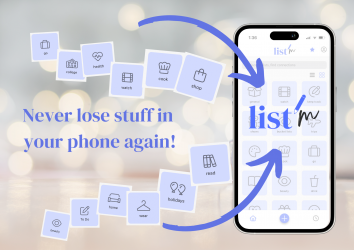5 Ways to Get Your Kids to Help

After thanksgiving dinner, music playing, lots of laughter and I swear the cousins all had fun cleaning up — it can be done.
Taking care of a home, feeding all the people that live there, managing multiple schedules and handling emergencies that will inevitably pop up is exhausting. Exhaustion increases stress, diminishes happiness and leaves you with too little energy for enjoying the life you work so hard to maintain. Having helpful kids is a game changer. I am not suggesting child labor. I’m not even suggesting they pull their own weight, only that that pull some weight. Any burden lifted off you, be it even small, will improve your day. On top of this, generally we are raising a generation who lack independence and basic skills. We expect so little of our kids, they have come to believe they are incapable. I could wax poetic about the benefits for your kids, but I’ll leave it at this. Being a contributor is empowering. Many hands make light work, and I promise taking steps to share the load is worth it.
- Start young. If your kids are older, go to tip two and start now. Even if clearing a table, folding laundry or making a bed takes longer with little kids, the long term benefit is worth a little patience with little helpers. Let them try. Don’t assume they can’t. Assume they can. My boys were doing their own laundry at 9 years old. They took this on on their own without being asked. They saw their much older sisters do it, and just assumed it was something they should do. Of course, I had to bite my tongue about mixing whites and colors, but I knew some pink-tinged socks were worth keeping quiet. I wouldn’t have asked someone so young to do laundry, and they proved they were capable.
- Ask for their help. Don’t assume they will jump in and empty a dishwasher without being asked. This seems obvious, but so often we parents become frustrated when things don’t just get done without having to direct. We internalize this frustration, and it comes out in other negative ways. Tell your kids exactly what you need help with. Be specific. Tell them when you want it done, as it, “now.” Don’t expect kids and teenagers to know what needs doing … even when it is incredibly obvious. What’s that line I see all the time on Instagram? It is something like, “The most delusional person in the world is the mother who puts things on the stairs and expects them to make their way up.” Yes, it is ridiculous they would trip over the shoes and still not think to bring them upstairs, but kids are dumb. That’s why God made parents.
- Show gratitude. You don’t have to shower them with praise for every little thing, but make sure they know you appreciate their help. Sarcasm, by the way, will set you back. You might want to say, “Ahhh, isn’t it nice when you can actually see the floor of your room,” but you will actually benefit more by saying, “It is so nice to walk past your clean room. Thanks so much for taking care of that.” I find it can be even more meaningful later, as in, “Hey, thanks so much for cleaning up after dinner last night. I was really tired after work and that made a huge difference in my day.” By then, they aren’t put off by having to help out, and it allows the appreciation to sink in in a more meaningful way.
- Be mindful of how and when you ask. Avoid saying, “Do you want to help me put these clothes away?” Seriously, does anyone really want to put clothes away? It is a little thing, but vocabulary matters. Try, “It would be really helpful if you could help me put these clothes away.” or just, “Would you please help me put these clothes away?” The when is even more important. Especially for your tweens and teens, on the nights they seem overwhelmed with schoolwork or just stressed and edgy in general, unless you truly, really need their assistance, let it be. In these cases, I find it useful to let them know why you aren’t asking them. ” I was going to ask for your help, but it seems like you are having a tough day. Maybe tomorrow will be better.”
- Show vulnerability. It is healthy for your kids to see you as an actual human with needs and feelings, and not just as the entity that provides them with everything and requires nothing. Explain to them why you need help around the house, why it matters. Otherwise kids tend to see “chores” as punishment or as something parents just make them do, like eating vegetables. Imagine this. A school organizer requires volunteers for an event and you get there to literally stand around and do nothing … you are just checking a box and there are too many cooks in the kitchen. Compare this with a friend calling you to please come help because she realized she was short-handed and really needs someone to check people in. Your help eased a burden. In the second scenario, you feel useful, not resentful, and appreciated. You’re much more likely to sign up for the next one. Kids are the same. Feeling useful and appreciated is a great motivator.
However you do it, get help from the kids. Ask because it will make your life easier, which will make you a better, happier parent. Demand it because part of your role is to make sure these kids can take care of themselves. We shouldn’t keep telling them they can be anything they want to be if they can’t even use a toaster.
Download the Free App that Makes EVERYTHING Easy to Remember.
Find Your G Spot (Not the One that First Comes to Mind)
Here are 20+ of our Favorite Festive Cocktails

7 Tips to a Happy, Healthy Relationship.

50+ Fabulous Thanksgiving Recipes























